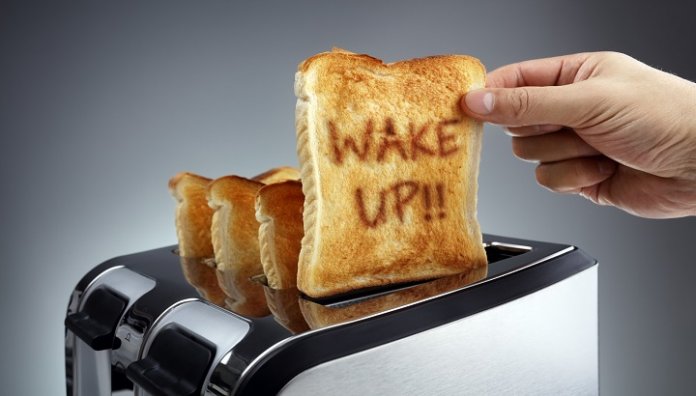It’s time for all of us to change the way we think about what “medicine” is. For so many people, the word medicine conjures up images of orange bottles with white caps that you pick up and refill at the pharmacy. While it is certainly true that the pills inside those bottles are indeed medicines… there are many more types of medicine in our lives that aren’t pills at all.
One of the most powerful, safe, and effective medicines out there is… sleep. A wise woman (who happens to be my beautiful and brilliant wife) once said, “sleep is my drug of choice.” And she’s right… sleep is medicine, and even with unlimited refills, it won’t cost you a dime.
Getting seven to nine hours of good quality sleep each night is essential to good health. When our sleep suffers, the well-being of both our bodies and our minds can deteriorate quickly. Sleep is our rest and “detox” period, and if we don’t get enough, inflammation and illness can take hold.
There is a mountain of research that demonstrates that poor sleep increases the risk of disease in virtually every body system. Some new research conducted at King’s College London sheds light on another ill effect of sleep deprivation: consuming more calories the following day. Maintaining a healthy body weight is essential to overall health, so the fact that sleep deprivation may be fueling overeating is a double whammy.
In the study, which was published in the European Journal of Clinical Nutrition, researchers performed a meta analysis of 11 previous studies that looked at the effects of partial sleep deprivation (defined as less than 6 hours per night) on caloric intake and energy expenditure. Results of the analysis showed that when people are sleep deprived, they consumed an average of 385 calories more per day. Since one pound of fat equals about 3,500 calories, that means that eating those extra 385 calories per day will result in a weight gain of about 3 pounds per month, and about 25 pounds per year!!!
On this research, senior author Dr. Gerda Pot commented:
“The main cause of obesity is an imbalance between calorie intake and expenditure and this study adds to accumulating evidence that sleep deprivation could contribute to this imbalance. So there may be some truth in the saying ‘early to bed, early to rise, makes a man healthy and wise.’”
There is indeed quite a bit of previous research equating lack of sleep to poor choices, including poor food choices. A 2012 study associated sleep deprivation with poor food choices at the grocery store the next day. Research performed in 2013 found that people who were sleep deprived bought more food the following day. A paper published in 2012 suggested that more sleep may equate to more effective weight loss, because sleep deprivation messes with both hormones and metabolism. This new study adds to the increasing body of evidence that quality sleep is vital.
If you’re having trouble achieving a healthy quality and quantity of sleep, there’s hope. Give these tips a try:
– Sleep in complete darkness: The pineal gland in your brain secretes melatonin in response to darkness. You need melatonin for healthy sleep… so make sure your room is as dark as it can be.
– Stick to a schedule: The sleep wake cycle functions much better when it has a regular, predictable rhythm. Try to have your bedtime and wake time not vary by more than an hour in either direction.
– Catch the wave: Don’t miss your “sleeportunity.” When you’re tired… go to bed.
– Minimize electronics before bed: Stay away from bright screens in the hour before bedtime. The bright light shuts off melatonin secretion.
– Use “night mode:” Smartphone and computer developers are getting hip to the reality that their products produce disruptive frequencies of light… and they have answered that critique with some useful new tech tools. “Night mode” is now available on many devices. It is a feature that decreases the amount of blue spectrum light that your screen puts out. You can set it to turn on night mode from sundown to sunrise, or turn it on manually.
– Use red or amber night lights: If you need to navigate during the night, using a red or amber night light will not affect your melatonin levels like a white bulb does.
– Keep it cool: The optimum temperature for nighttime in the bedroom is between 65 and 68 degrees.
– White noise: Consider using a fan or an inexpensive white noise machine.
– Avoid liquids for 1-2 hours before bed: And remember to empty your bladder before bed even if it doesn’t feel full. This will reduce the chance of nighttime awakening.
– Avoid caffeine after 2pm: We all envy those people who can drink a cup of coffee and go right to sleep… but for many of us “normal people” the effects of caffeine can linger for many hours.
– Make your bedroom a sleep sanctuary: It is not and entertainment center. Get rid of the TV and the electronics and make you bedroom a refuge.
– Try lavender: Some people find that rubbing some lavender essential oil on their pressure points, such as the wrists and temples, can be relaxing and sleep enhancing.
– Get tested: If your insomnia is intractable, you might benefit from a consultation with a sleep specialist who will likely conduct a sleep study to get a more clear diagnosis.
Making sure that you get quality sleep each night is worth it to the health of every system in your body. It’s highly worth it to make sleep a primary focus of your health plan.
Sweet dreams!
– Dr. Joshua Levitt


